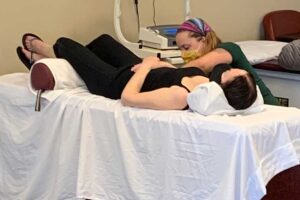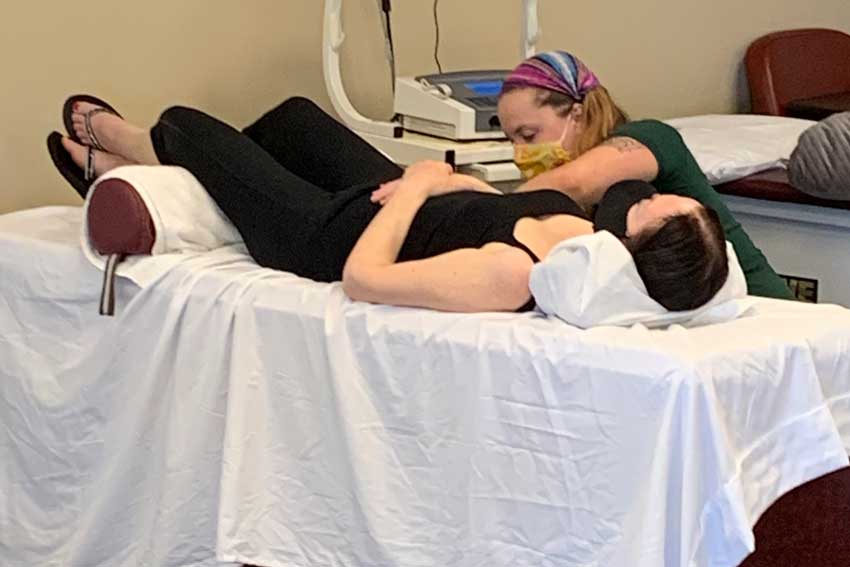What Qualifications do Occupational Therapists Need?

National Certificates and Licensing
Occupational therapy (OT) considers the whole body in helping patients perform meaningful daily activities, regardless of the disability or injury.
Occupational therapists (OT) and occupational therapist assistants (OTA) have a college degree(s) and must do supervised fieldwork programs and pass a national certification exam before being licensed to practice. A license to practice is mandatory in most states, as are continuing education classes once the license is obtained. Most states also regulate occupational therapy practices.
The advanced degrees OT practitioners obtain are:
- Occupational Therapist (OT): An OT has a bachelor’s degree in a related field (such as biology, psychology, or health science) and a master’s degree from an accredited occupational therapy program.
- Occupational Therapist Assistant (OTA): An OTA has an associate’s degree from an accredited OTA program. They can carry out treatment plans developed by an OT but cannot do patient evaluations.
Occupational therapy focuses on helping people adapt to and perform the activities of daily living more easily and may play a role in:
- Reducing the likelihood of hospitalization or readmission;
- Decreasing the likelihood of contractures and joint deformities;
- Improving resistance to infection via activities proven to enhance immunity;
- Combatting disruptions to one’s mood as a result of social isolation;
- Addressing occupational deprivation and helping establish habits, roles, and routines;
- Promoting participation in educational, play, and learning activities in the home or school; and
- Increasing independence.
Occupational therapists work with mental health issues, helping patients who suffer from developmental disabilities, mental illness, or emotional problems learn skills such as time management, school performance, or how to complete household chores, in order to help them better adapt to the demands of daily living.
In addition, occupational therapists may work with patients who have drug or alcohol addictions, depression, or anxiety. Treatment may also help patients who have experienced a traumatic event or serious physical injury.
Occupational therapy can help adults, kids and teens with:
- Alzheimer’s Disease/Dementia
- Anxiety/Post Traumatic Stress Disorders
- Brain Injuries/Concussion
- Chronic Conditions
- Cognitive Disorders
- Depression
- Developmental Disabilities
- Fall Prevention/Balance/Vertigo
- Fine Motor Skills
- Joint/Musculoskeletal Disorders
- Pain Management
- Sensory Processing Disorders
- Visual/Perceptual Skills
Our Commitment
Whatever your treatment goals are, it’s our belief that the biggest single factor to aid in recovery is completing the prescribed course of care.
Our mission is to enable people of all ages to live life to its fullest by helping them promote health and prevent or better accommodate illness, injury, or disability to improve their quality of daily living. With this shared commitment, we are continuing to provide the safest levels of care for our clients throughout Southwest Michigan.
If you have questions, please call and speak to one of our therapists at (269) 544-2901 or email us at info@therapyplace.net.

